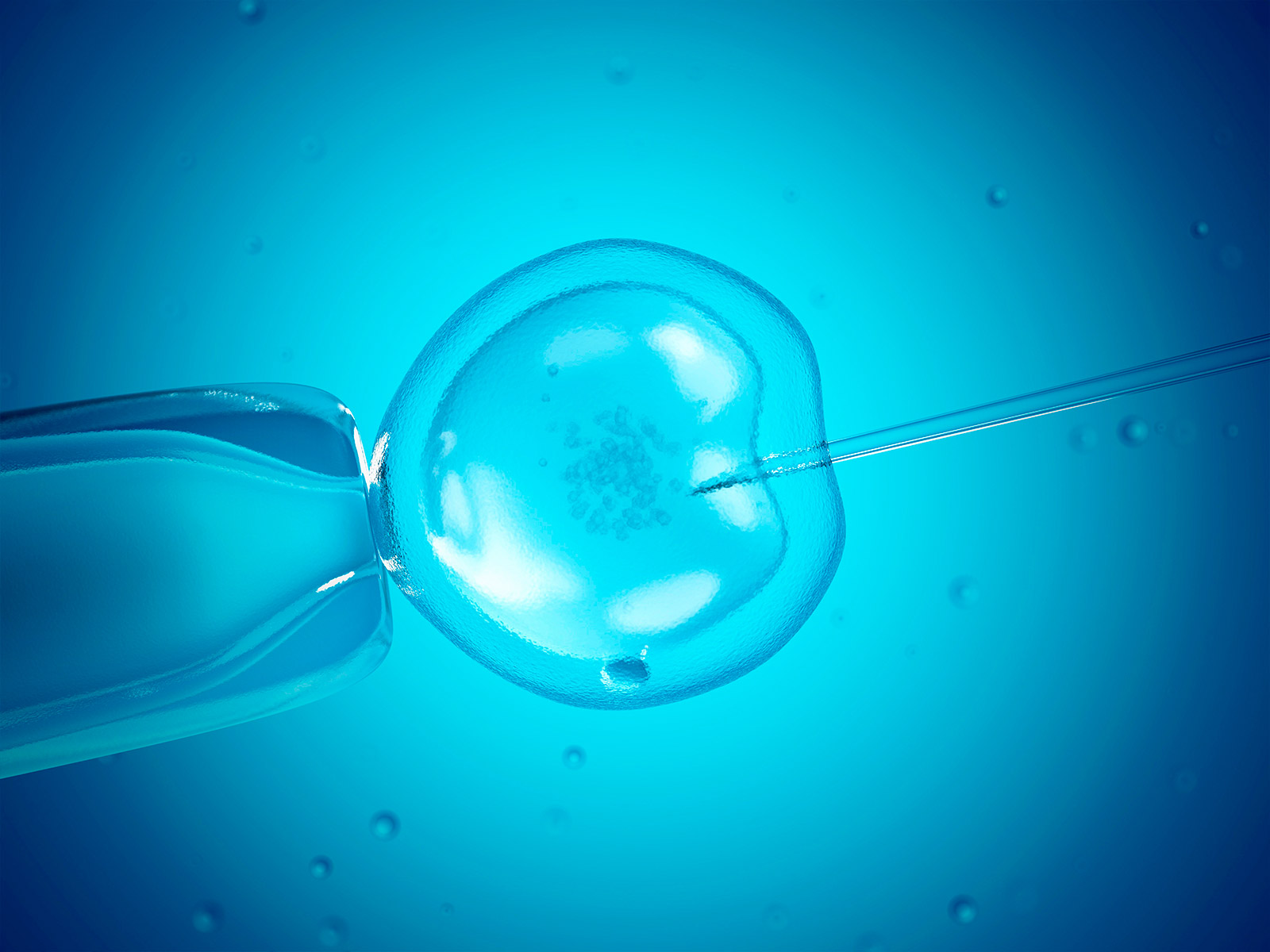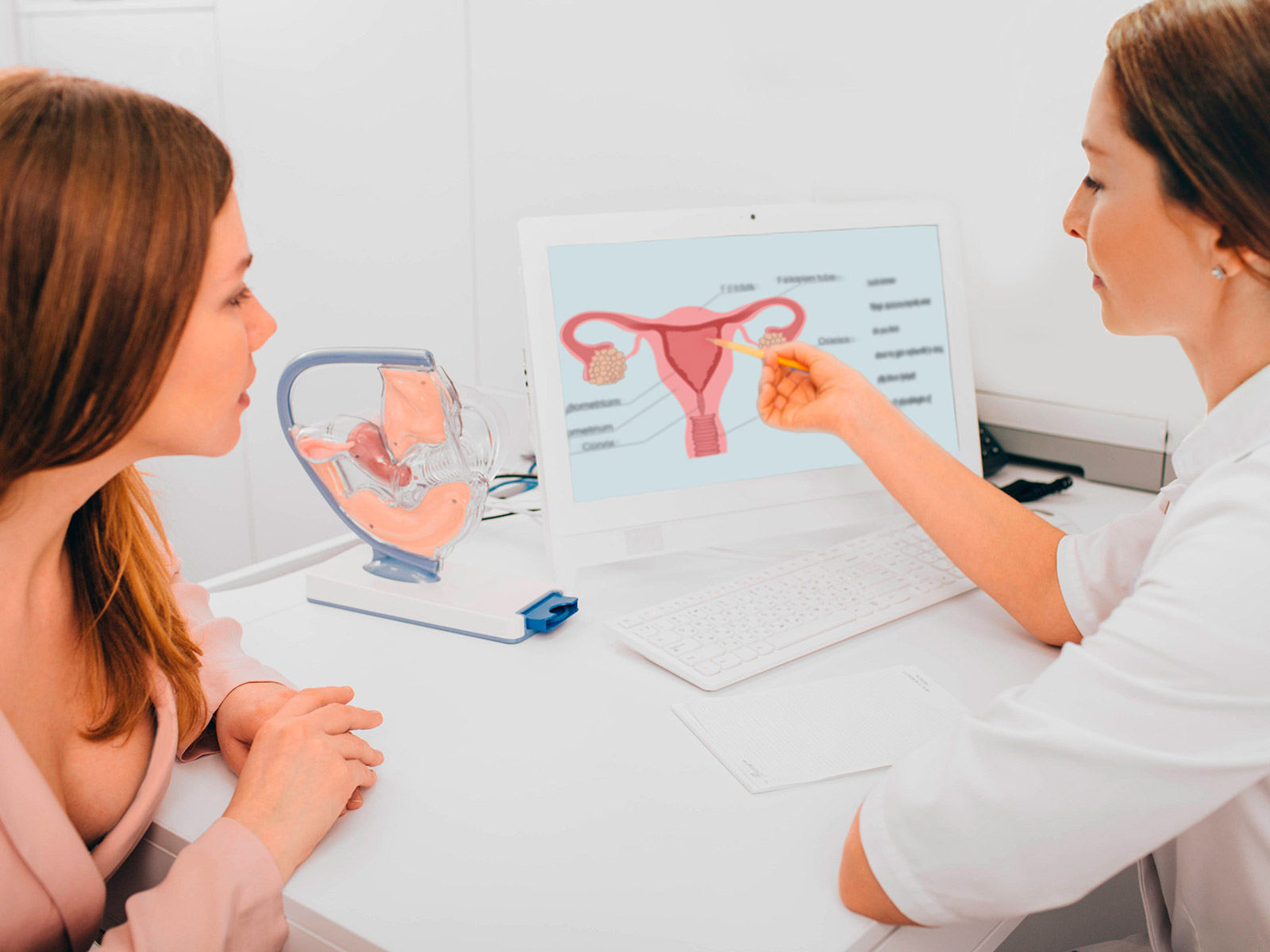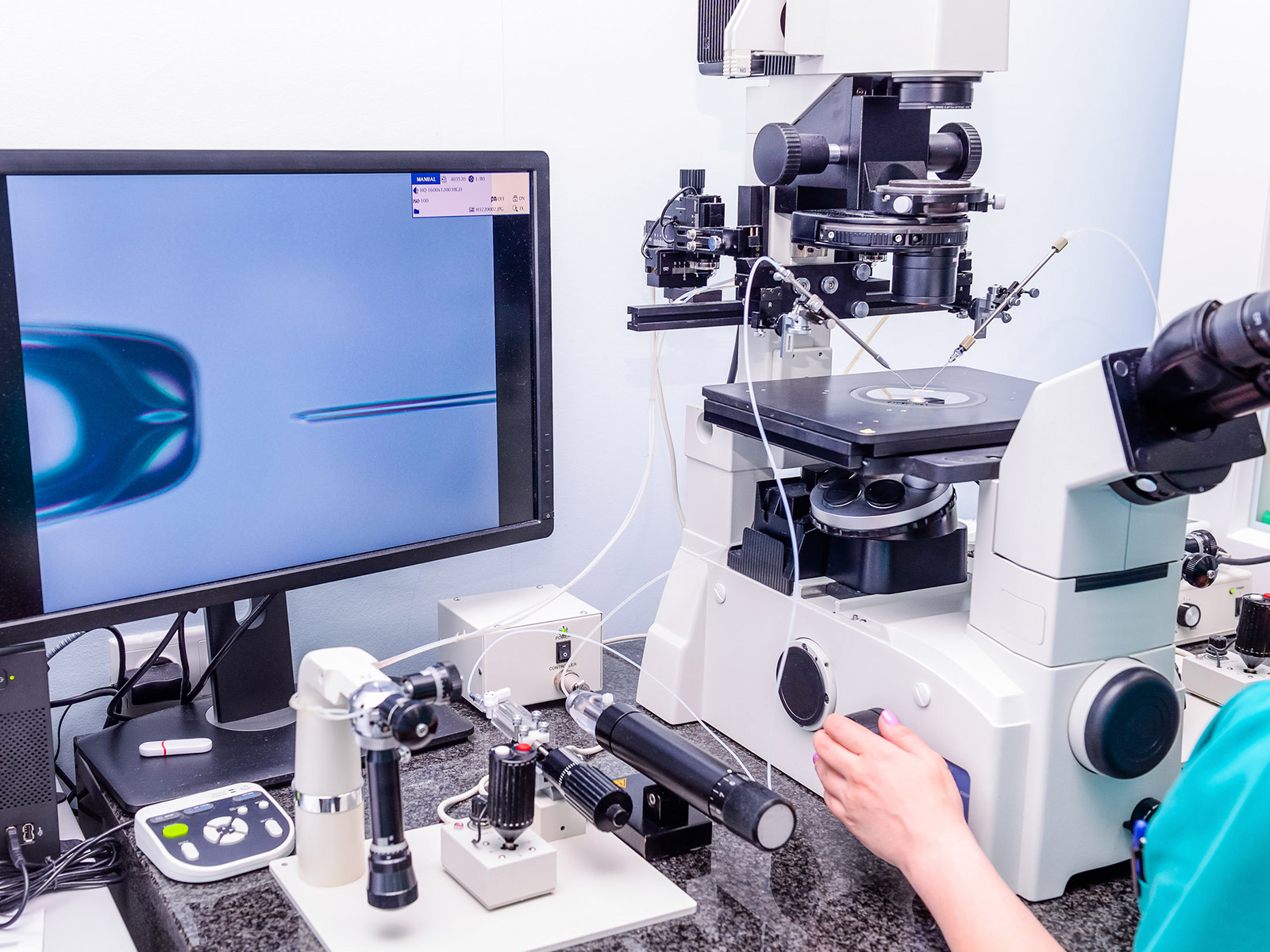In Vitro Fertilization (IVF)
In Vitro Fertilization, or IVF, allows us to fertilize an egg with a spermatozoon outside the mother’s womb.
In Vitro Fertilization, or IVF, is a laboratory procedure that involves the union and fertilization of an egg with a spermatozoon outside the mother’s uterus.

What is in vitro fertilization?
In Vitro Fertilization, or IVF, is a laboratory procedure that involves the union and fertilization of an egg with a spermatozoon outside the mother’s uterus.
IVF purpose is to obtain healthy embryos that will be successively transferred into mother’s womb, where they will evolve eventually until pregnancy.
If a woman cannot produce an adequate amount of good quality eggs, she still could become a mother thanks to an egg donor.
Different options of In Vitro Fertilization (IVF)
IVF with own eggs and partner’s semen
The eggs retrieved from your ovaries are fertilized with your partner’s semen.
IVF with own eggs and donor semen
The eggs retrieved from your ovaries are fertilized with a donor semen.
IVF with donor eggs and semen from your partner
When the ovules lose their potential to generate an healthy pregnancy or in case of their number decrease, we can rely to eggs of another woman. This technique offers a higher motherhood chances beyond optimal reproductive age, or specific medical situations.
IVF with donor eggs and donor semen
In specific cases of infertility, donor eggs could be fertilized with donor semen, both anonymous.
Método ROPA
Es una variante de la Fecundación in Vitro (FIV) para parejas de mujeres que deciden tener un bebé deseando participar ambas en el embarazo de manera activa.
How is IVF performed?



The Insemination Day
Egg Donor
If a woman cannot produce an adequate amount of good quality eggs, she still could become a mother thanks to an egg donor.
Pregnancy test
Your doctor at The Fertile Group will tell you the optimal date for a blood pregnancy test, which is usually 11 days after the embryo transfer. Our patients can have a normal life during those days, even if we highly recommend to avoid high intensity activities.
The cost of this treatment, depending on specific clinical conditions of each patient, usually ranges from $5000 to $7000, with ovulation stimulation medicines included.
The Fertile Group also offers financing facilities for your treatment.
Our specialists will be at your complete disposal


